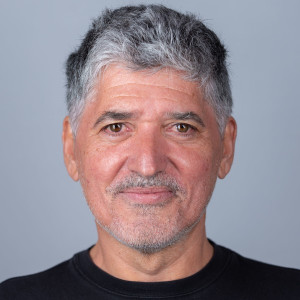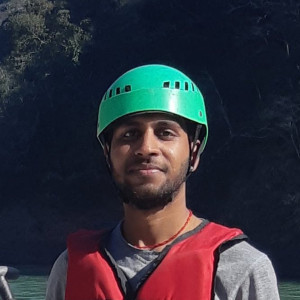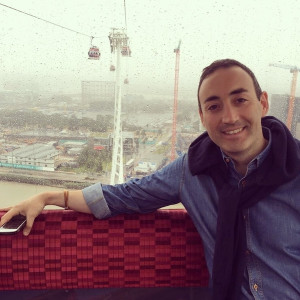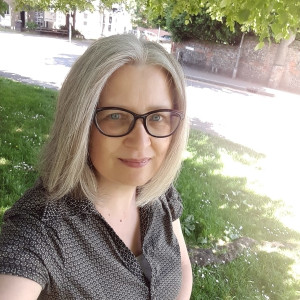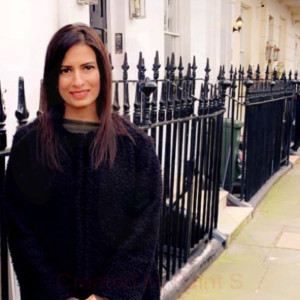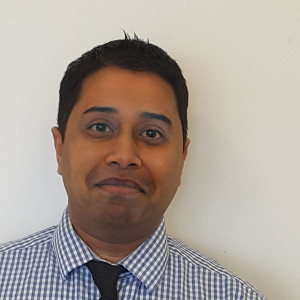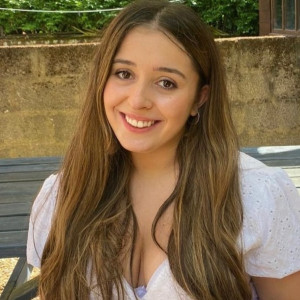Chapters
Where the more personal aspects of the human experience are concerned - sex, love and what constitutes a family, it was once expected of parents to teach their children. However, as time goes on, subjects like sex education and others are finding their way into school curricula. RSE is the latest such course, introduced nationwide.
What is RSE?
RSE stands for Relationships and Sex Education. The courses were expected to roll out in September 2020; however, between lockdowns and hybrid learning, it was unclear whether every school had started teaching it. Whether or not they had, it is compulsory. Now that schools have resumed (in a normal fashion), parents and caregivers can expect their children to receive formal education about sex and relationships.
Why Are People Talking About This Course?
This course is the furthest thing from business studies or any other school subject. There is plenty of discussion about promoting understanding of the range of relationships in society today, some of which were once considered taboo. People have concerns about how such education would impact more conservative students, including those whose religious views do not mesh well with this sort of teaching.
And how will it be adapted to SEND students? There are concerns about bias in the curriculum. And, there is a substantial worry that teachers can or should guide this type of learning. Your Superprof wants to give you some food for thought and, hopefully, answer your questions about this new, mandatory course your children will take.

The Need for Such Education
Any reasonable person who has some awareness of what's taught in public schools across the UK has cause to wonder. There's already a course to address relationships and sex (RSHE); why do we need another one?
It has never been easy to restrain the (pre-) teen population once they get the idea to test their autonomy in every conceivable way. Only now, their doing so could lead to lifelong incapacitation if not death.
Not that we're painting the past in a rosier colour than it deserves. But twenty or thirty years ago, illicit drugs were not as deadly, AIDS was still mostly considered a disease that afflicted only a portion of the population. Even social media was nowhere near as prevalent.

Thankfully, although AIDS continues to rage, antiretroviral therapy ensures that those afflicted can enjoy a relatively normal lifespan. As for drugs, there's ketamine, ecstasy and a whole host of date-rape drugs - all destructive and all are readily available. What about social media? Virtually everyone has at least one account, including kids as young as 10.
Who could forget Gemma Watts, who targeted and groomed her victims through social media? When the news of Ms Watts' activities hit our tellies, we were glued to our screens in horrified fascination. Horrified at how easy it is to create deceit and seduce victims. Fascinated that she managed the feat over and over.
We felt sorrow for her victims and perhaps even fear that such an outrage could happen to our children. J. K. Rowling tackled the subject of child sex in her 2012 novel The Casual Vacancy. Krystal Weedon is a secondary school pupil - arguably the character most deserving of sympathy is raped. Later, she attempts to get pregnant for all of the wrong reasons.
Drug use, sexual exploitation and easy access to vulnerable populations: all of these social ills have afflicted civilization since its dawning. Today, despite parents' best efforts at educating their kids about them, these conditions pose an ever-greater danger. Isn't that a good reason to add such education to schools' curricula?
Teaching RSE
In theory, schools educating children about the intricacies of managing their private lives makes sense. If they all receive the same message, it's more likely that they will all come to the same conclusion... right? In practice, teaching these subjects from an academic perspective seems well-nigh impossible.
For one, the prevailing educational theory in most schools across the world espouses the idea that children are merely vessels to be stuffed full of facts. To that end, the teacher faces her charges and holds forth. There are obvious flaws to this theory but in the context of this new curriculum subject, one stands high above the others. Will there be time for discussion, debate... the launching and answering of questions?
Standard academic classes like maths and English don't have much flexibility to permit heated arguments or exploration of ideas. How are we to believe that this subject would be different? Furthermore, knowing teens' reluctance to discuss intimate matters, how can we count on their enthusiasm - or even their participation?
With all of that having been said, let's be clear: kids need to hear this information. They need to know about the risks of interacting online, sexually transmitted diseases and the signs of an unhealthy relationship. They also need to know how to maintain their physical and mental wellness.
Parents and caregivers, for all of their efforts, do not necessarily have access to the latest information. Nor can they be expected to know about the latest threat to their child's safety. We certainly don't mean to imply that this curriculum will be updated every time some new social ill or predatory behaviour manifests. However, there is a greater likelihood that all students may be more quickly apprised if the information is first distributed to schools.

What the Curriculum Contains
Before we get into the particulars of this programme, let's give some quick reassurance. Parents/caregivers have the right to withdraw their child(ren) from the sex education components of the programme. However, the Health and Relationship study modules remain compulsory. Also, Personal, Social, Health and Economic education remains compulsory; this programme does not replace it.
Schools and teachers get to decide how to teach the information this statutory programme presents. Discussions over how to deliver these lessons to SEND students are still ongoing. Beyond that, you should know that RSE is a broad programme, spanning from your child's primary school experience through their secondary years.
Naturally, the sex education component will not be addressed in primary schools. That wouldn't be at all appropriate! However, other vital information will be presented starting in Key Stage 1. Those topics include:
- Mental wellbeing
- Physical health and fitness; healthy eating
- Health and prevention - noticing changes in eating and sleeping habits, for instance, and that they may indicate an underlying condition
- Basic first aid
- The adolescent body (focused on physical development)
- Drugs, alcohol and tobacco
- Internet Safety
These topics are covered more in-depth at the secondary level, with certain aspects of them evolving to be more suitable to students' increasing maturity. For instance, students will learn how to do CPR and operate a defibrillator. They'll delve deeper into aspects of adolescence and puberty and maintaining a positive body image. They will be guided deeper into the virtual world - how to spot scams, trolling and phishing online, how to avoid bullying and how to resist the siren call of influencers.
Suitable for All?
All of that sounds pretty good, doesn't it? Especially the consideration is given to SEND students and how those pupils might receive and process all of this information. But the brief description above belies the programme's complexity. So now, we go into specifics of what this curriculum entails.
From a Gender Perspective
Traditionally, sex and relationship education reflected family and local societal values. For instance, if a family (or the community) believed that such a social unit must consist of a male and female parent, they might be less inclined to acknowledge that families led by two females or two males could be considered legitimate.
This programme's guidelines emphasise that teaching curriculum segments addressing sexual orientation and gender identification/reassignment must comply with the Equality Act 2010. Meaning that any commentary on what was formerly considered illegitimate parenting will not feature. Except perhaps from a historical perspective.
Teaching guidelines state that the instruction should integrate content rather than broach topics of sexuality as standalone subjects. For instance, teachers would not say "Ok, we're done learning about body image. The next chapter covers how transgender people view their bodies."
This curriculum is meant to be inclusive of all orientations and gender identities. Thus, you will not hear any gender group called out or given any particular attention.
From a Religious Perspective
Again: this curriculum is designed to fully comply with the Equality Act of 2010. That means that a student's religion might prohibit discussing sensitive, intimate or private matters with people outside of their faith or family unit. In that case, the student may be excluded from study units that run contrary to their religious doctrine.
Like Humanities studies, this curriculum is unusually broad, touching on many different aspects of the human experience. So students seeking exemptions on religious grounds can only be excluded from those segments deemed offensive to them. As mentioned earlier, that possible exclusion only covers those parts of the curriculum dealing with sex.
That sets up an uncomfortable and difficult scenario. First, their parent(s) must validate that their religious beliefs require that their child not be exposed to such information. Second, that child will now be excluded from a programme meant to include everyone.
The Department for Education does not make it clear how such exemptions should be handled. They would be hard-pressed to outline those steps seeing as each school has the liberty to administer the programme as they see fit. Surely, as the programme rolls out, parents, religious leaders, teachers and administrators will work out those kinks.

Tips for Talking About Relationships and Sex
As we mentioned at the start of this article, typically, parents undertake the most intimate of their children's sex and relationship education. At least, we like to think so. But then, these topics are not like business studies. They're not impersonal and unemotional.
Some parents feel uncomfortable with this subject. As society becomes more tolerant, its broad embrace of relationships and gender diversity may drive that discomfort. Still, time moves on and not everybody has the knowledge, experience and/or tolerance required to talk with kids about these subjects with authority and conviction.
Some people do not want to acknowledge certain aspects of our evolving society. Others believe that too much information given to those too young to understand it does more harm than good. Or they worry that the information will be too comprehensive about older children's experiences. They may even believe that talking about sex and relationships too early encourages sexual or relationship behaviour that would not otherwise have been part of their kids' lives.
Research suggests that this is not the case. The unanimous consensus is that children need this information to develop their understanding of relationships and sexual matters as soon as they exhibit curiosity about those topics.
They contend that children should be able to manage their own sexual and relationship orientations and experiences. They should be enabled and empowered to make informed and assertive choices about their sexuality and the types of relationships they are interested in pursuing. To provide that empowerment, parents should give their kids a better understanding of the relationships that make up contemporary society.
They should encourage their children to have more solidarity with people who are different from themselves. And empathy when people are treated badly due to personal factors out of their control. Maybe like their skin colour or their visible identifiers. Finally and most importantly, children need to feel they are supported and accepted. Especially should they feel different from the mainstream perceptions of the community (and family) they live in.
In RSE classes, pupils will be taught about the many types of relationships. They'll learn about lesbian and gay relationships, same-sex parenting, and about gender identity. They will be treated to a clinical dissection about the harm of gender stereotyping, bigotry and exclusion.
The idea is to encourage an open attitude towards the range of relationships across society. To be able to talk about these matters in a safe and healthy environment, and to promote inclusion. Discussing these topics openly helps cultivate communication skills and empathy.
These days, we're pretty open and inclusive, at least in the bigger cities. But there still exists a climate of judgement and discrimination towards those who have relationships that differ from what some consider the norm. Many attributes that intolerance to the lack of education and/or understanding of gender identity outside of the traditional binary perspectives.
Unfortunately, we can't disregard some people's unwillingness to acknowledge the variety of characters that make up modern society. This can make some people feel isolated and alone, or even threatened. If our youngsters’ education is going to be complete they need to know about diversity without judgement.
Just as children learn about different ethnic groups, cultures and communities, it’s also important that they learn about sex, relationships and gender diversity. Then, they’ll have the knowledge and vocabulary to discuss these issues comfortably.
They will be able to build and reinforce a healthy attitude towards their own and others’ sexual experiences and preferences without anyone feeling guilty, ashamed, isolated or marginalised. However uncomfortable parents’ initial reactions are - either with their children's onset of puberty or with this curriculum, everyone can get on board.
Parents and children, teachers and school administrators... Even the religious community should be involved through frank discussions and activities that support this type of learning. With the study resources the RSE curriculum provides as part of students' formal learning, this course could be one of the best social wins of all.






